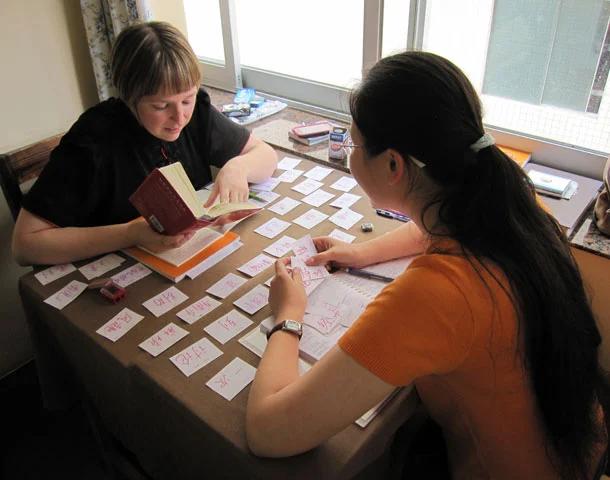Contents
- 1 Chinese Language Fact No. 1 – MANDARIN HAS NO ALPHABET
- 2 Chinese Language Fact No. 2 – ANGLICISMS IN CHINESE
- 3 Chinese Language Fact No. 3 – THE FASTEST GROWING LANGUAGE IN THE WEST
- 4 Chinese Language Fact No. 4 – SIMPLE GRAMMAR
- 5 Chinese Language Fact No. 5 – LISTEN FOR THE TONE
- 6 Chinese Language Fact No. 6 – IT’S AN OFFICIAL UN LANGUAGE
- 7 Chinese Language Fact No. 7 – IS STUDYING MANDARIN CHINESE DIFFICULT?

China is becoming a force to reckon with.
No one would doubt the fact that Mandarin is becoming a fast-approaching global superpower as well. With over a billion native speakers, about 15% of the world’s population speaks Chinese as their primary language. That’s more than English, Spanish, French and German – combined!
Mandarin may be more interesting than you thought it was.
It’s a language that’s unlike any others. There are no plurals, no genders, and no tenses. There are many interesting facts and figures about Mandarin Chinese, and we’re sharing those with you today. You may take this post as a beginner guide for learning the Chinese language as well.
Chinese Language Fact No. 1 – MANDARIN HAS NO ALPHABET

Yes… you read that right. The language of Mandarin has no alphabet. It uses symbols also called Chinese characters (Do you know ways to learn Chinese characters?). These characters represent one of the oldest writing systems in the world. By mastering the most common 500 Chinese characters, you will deal with daily Chinese reading and speaking.
There are two major forms of Chinese characters – traditional and simple.
The traditional characters are used in Taiwan, Macau, etc. While simple characters are used prominently in China.
Characters can also be written in any direction – left to right, right to left, or top to bottom. This makes the script extremely versatile.
Chinese Language Fact No. 2 – ANGLICISMS IN CHINESE

Mandarin may seem daunting because of the characters and the vast differences compared to the English language, but there are some similarities.
We can see English’s effect on the Chinese language with the “loan words” taken from English.
One fact about Chinese learning is that there are many Chinese words that you have already known about without learning.
For example 巧克力 qiǎo kè lì for “chocolate” and 沙发 shā fā for “sofa”.
In this aspect, Mandarin Chinese is actually not that difficult to study. There are also many ways to allow you to learn the Chinese language easily and efficiently.
Chinese Language Fact No. 3 – THE FASTEST GROWING LANGUAGE IN THE WEST
Not only is Mandarin the fasting growing language in the world, but it has also seen the most growth in people learning it as a second language.
Chinese is quickly becoming the language of business and tourism, and business professionals see the future, including more Mandarin characters. By learning the Chinese language in China, you could add more professional value to your resume and gain more inspirational and innovative thoughts.
Seizing the moment by having an immersive Chinese language learning program will be your most worthful investment in yourself.
Chinese Language Fact No. 4 – SIMPLE GRAMMAR
Comparing with most European languages, the Chinese language owns a relatively simpler grammar system. Therefore, it is not difficult to master Chinese grammar. Chinese verbs are not modified for tense like they are for the English language and many others.
When it comes to nouns, unlike English, in which plural nouns are marked with an -s, Chinese nouns have the same form no matter if they are singular or plural.
You don’t even need to specify gender when using speaking and writing Mandarin. (Learning more details about how to improve your Mandarin Chinese writing skills.)
Chinese Language Fact No. 5 – LISTEN FOR THE TONE

When learning and speaking Mandarin Chinese, you can easily notice that it is a tonal language. The same syllable can be pronounced in different tones. There are four main tones and one neutral tone.
The first tone is high and level. To pronounce the first tone correctly, try to stay mostly monotone when saying the whole syllable.
The second tone rises moderately. In English, we tend to associate this rise in pitch with a question.
The third tone falls and then rises again, and the fourth starts out high but drops sharply to the bottom of the tonal range.
When it comes to the neutral tone, it’s pronounced quickly and lightly without regard to its pitch. These four tones (plus the neutral one) mean that one Chinese word can mean four different things! Practice your tones.
Chinese Language Fact No. 6 – IT’S AN OFFICIAL UN LANGUAGE
Chinese joins English, French, Russian, Arabic, and Spanish as one of the six official UN languages. The fasting growing language (Mandarin) became an official language on February 1, 1946.
Chinese Language Fact No. 7 – IS STUDYING MANDARIN CHINESE DIFFICULT?
Is the Chinese language difficult to learn? Studying Mandarin Chinese is not as difficult as most people think. Mandarin has a simple set of rules, easier to understand than English or French grammar. Say goodbye to conjugating verbs, say goodbye to singular and plural nouns, and say goodbye to gender-specific nouns.
You may find the most difficult part when studying Mandarin is mastering the different tones. Keats School is here to help you.
Dedicated to providing top-quality Chinese language programs for international students, Keats School has developed a series of efficient Mandarin learning courses, including the Intensive one-on-one Chinese program, Small group classes, HSK test preparation course, Online Chinese lessons, Chinese language study + Tour, Chinese language study + Volunteer, Children program and customized Chinese program.
When learning Chinese at Keats School, you can also enjoy the priority of changing study locations at the Keats branch school, which greatly enriches your trip to China as well by allowing you to visit Dali, Lijiang, Puzhehei, Yuanyang, Xishuangbanna, Tengchong, Jianshui, and Jingmai Tea Mountain.
Come to learn Chinese in Kunming, China, and learn the specifics of this growing language.


